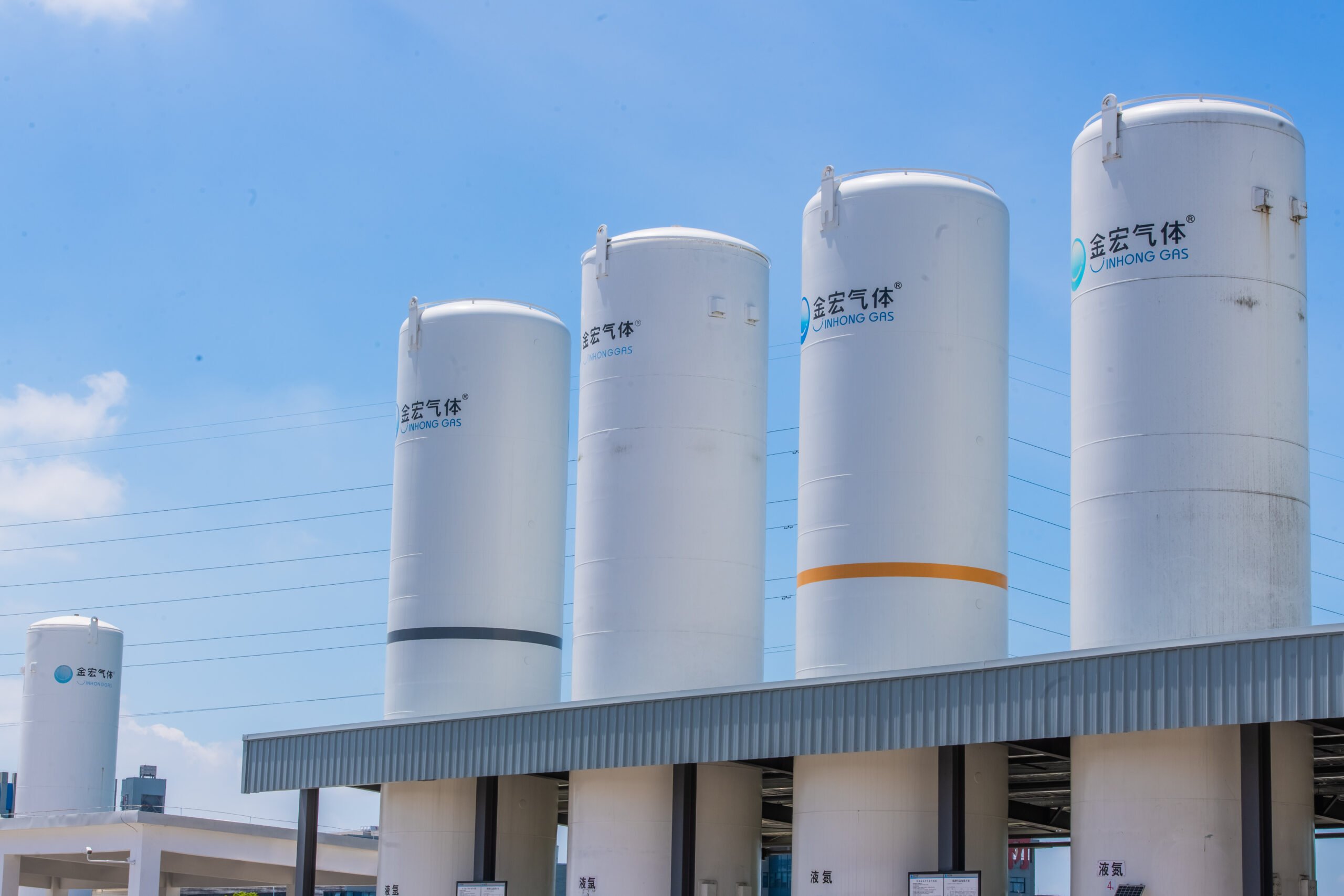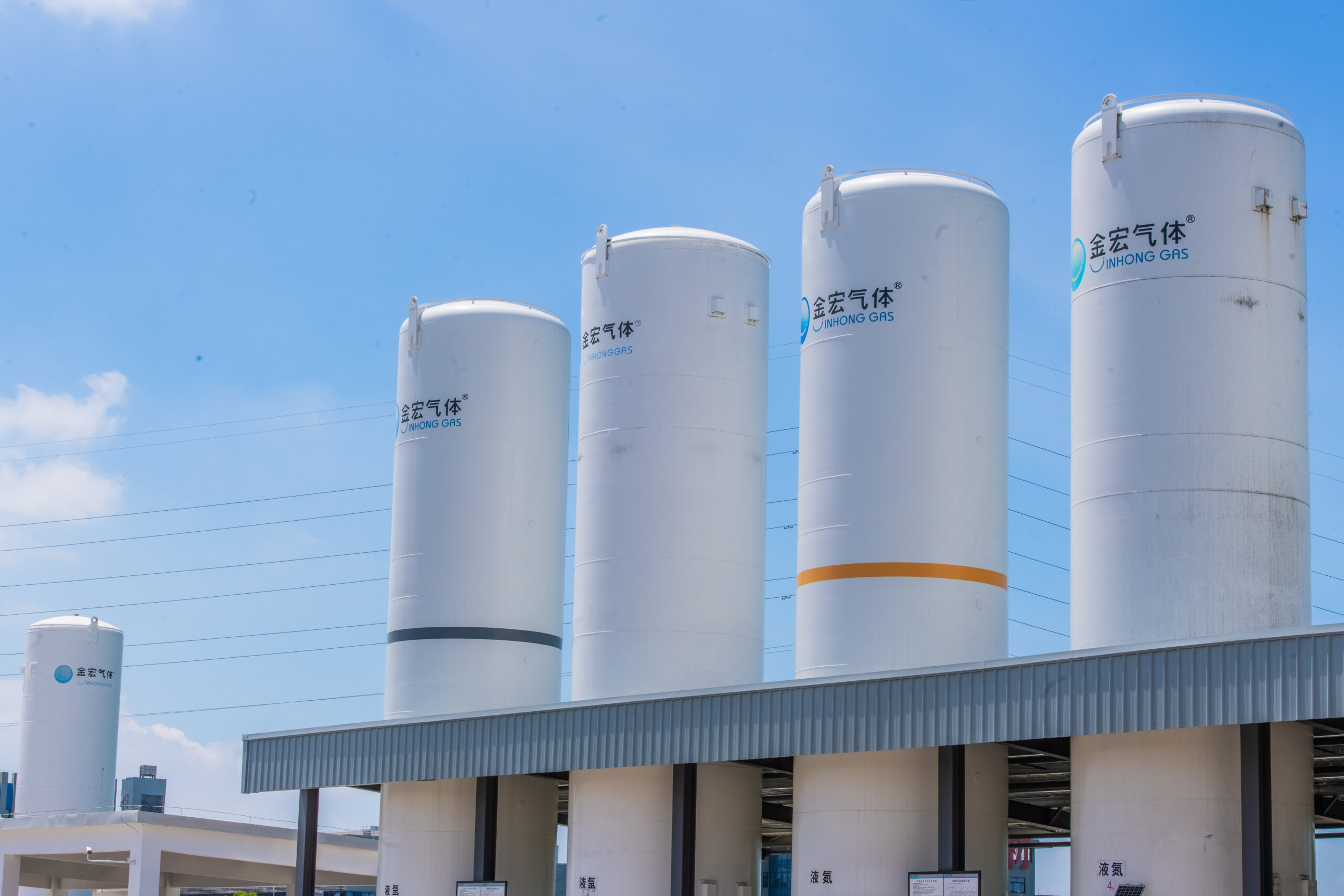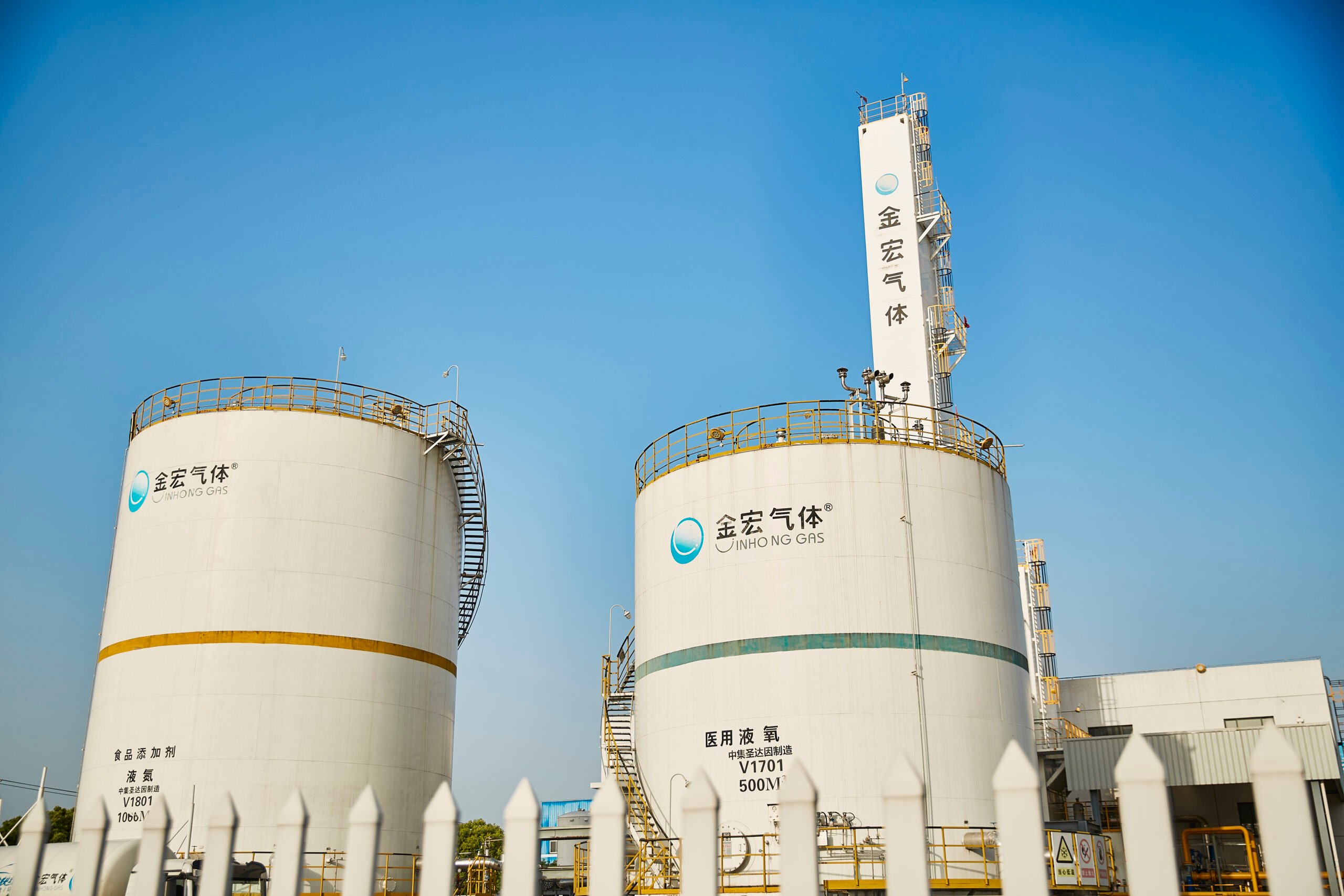
Real Explosion Case: Oxygen Cylinder Accident
On the afternoon of December 4th, an explosion involving an oxygen cylinder occurred at a work site on Xinfeng Highway in Fengxian District, Shanghai. Sadly, a 51-year-old worker died at the scene. Initial investigations suggest the incident was caused by improper handling during the cutting of steel plates, which triggered the oxygen cylinder explosion.
Eyewitnesses reported a loud blast accompanied by rising smoke. On-site inspection revealed multiple gas cylinders and flammable materials scattered around the area without proper organization. It is believed that the worker’s improper cutting operation caused the oxygen cylinder to explode, leading to the fatal accident.
Why Must Acetylene Cylinders Remain Upright?
Acetylene cylinders must always be stored and used in an upright position due to the following safety reasons:
- Prevent Acetone Leakage: Acetylene is stored dissolved in acetone under pressure. When a cylinder is laid horizontally, acetone can escape along with the gas. This not only increases acetone consumption and lowers the flame temperature—compromising performance—but also poses an explosion risk. The released gas may mix with air to form an explosive mixture (explosive range: 2.3%–72.3%, minimum ignition energy: 0.019 mJ), which can be easily ignited by heat or flame.
- Avoid Cylinder Movement: A horizontally placed acetylene cylinder may roll and collide with other objects, potentially generating sparks and causing an accident.
- Prevent Static Electricity: Acetylene cylinders are equipped with rubber shock rings to prevent damage during handling. If placed horizontally on insulating surfaces, static electricity can accumulate, increasing the risk of ignition in the event of a gas leak.
- Protect Attached Equipment: Regulators, flashback arrestors, and hoses attached to the valve can be damaged or detached if the cylinder rolls, causing gas leaks that may lead to fire or explosions.
Why Are Anti-Tip Measures Required?
If a gas cylinder falls over, the valve may break, releasing gas at high pressure. The resulting thrust can turn the cylinder into a projectile. If the gas is flammable, this can cause fires or explosions with serious consequences.
In one case, a metal products company was fined RMB 45,000 for failing to install anti-tip devices on two fully charged acetylene cylinders stored near an electrical panel.
Safe Storage and Handling Guidelines
1. Why must oxygen and acetylene cylinders be stored separately?
Oxygen supports combustion, while acetylene is highly flammable. If acetylene leaks and mixes with air, even a small spark can cause a violent explosion. If an explosion damages nearby oxygen cylinders, the release of oxygen can intensify the fire, making the situation uncontrollable.
2. Why should cylinders be protected from direct sunlight?
Acetylene cylinders should not be exposed to temperatures above 40°C. Acetone boils at 58°C. Excessive heat accelerates acetone evaporation and gas release, dangerously increasing cylinder pressure.
3. Why must residual pressure be maintained in gas cylinders?
Maintaining residual pressure ensures that the internal pressure is higher than atmospheric pressure, preventing air from entering and contaminating the gas. For oxygen cylinders, the residual pressure should be 0.098–0.196 MPa. For acetylene cylinders, it should be 49–98 kPa in winter and up to 196 kPa in summer.
4. Why must oxygen cylinders, especially the valve area, be free of oil or grease?
Oil or grease, especially those containing unsaturated or fatty acids, can spontaneously ignite in pure oxygen due to rapid oxidation and heat buildup. When high-pressure oxygen is released, it can violently react with oil residues, causing fires or explosions. This is why all oxygen equipment must be completely oil-free.
5. Why should cylinder caps be used?
Cylinder valves are typically made from copper alloys, which are structurally weaker than the steel body. During transportation or handling, if the valve is damaged or broken off, high-pressure gas can escape uncontrollably, turning the cylinder into a dangerous projectile. Valve caps also prevent dust or grease contamination.
6. Why must acetylene cylinders not be subjected to impact?
Impacts can damage internal components such as porous filler material and cause pressure buildup, increasing the risk of explosion. High temperatures can also cause acetylene polymerization and detonation.
7. Why must cylinders be handled gently and never thrown, rolled, or dropped?
Rough handling can cause structural damage or trigger an explosion, resulting in serious injuries or fatalities.
8. Why are oxygen cylinders not allowed to be hoisted directly?
Being high-pressure containers, oxygen cylinders can explode if dropped. Bulk transportation should use specialized racks designed for secure handling.
9. Why do acetylene cylinders explode?
Explosions typically result from thermal or pressure-induced decomposition of acetylene. Causes include backfire during welding, exposure to flame or radiant heat, or valve fires. Preventive measures include installing flashback arrestors, keeping cylinders away from heat sources, and ensuring gentle handling.
10. Why can’t oxygen and acetylene hoses be mixed?
Oxygen hoses are designed for high pressure, while acetylene hoses are low-pressure. Acetylene hoses may develop internal carbon buildup, which can ignite in the presence of oxygen.
11. Why can’t gas cylinders be used for different gases?
Mixing gases can cause uncontrolled chemical reactions and catastrophic explosions.
12. Why must oxygen cylinders be insulated when used near electric welding equipment?
Insulating the base prevents the cylinder from becoming electrically charged, which could cause sparks and fire.
13. Why must acetylene cylinders not rest on insulating materials?
Acetylene’s ignition energy is extremely low. Any static discharge—however small—can ignite it. Grounding the cylinder prevents static buildup.
14. Why must acetylene-compatible copper alloys contain less than 70% copper?
Prolonged contact between acetylene and high-copper alloys can form explosive compounds like copper acetylide, which detonate at temperatures as low as 110–120°C.
Common Cylinder Hazards
- Missing anti-tip devices
- Hoses for oxygen and flammable gases not color-coded
- Lack of flashback arrestors
- Inadequate separation between gas cylinders
- Faulty pressure gauges and improper hose usage
These violations significantly increase the risks of fire, explosion, and injury. Proper training, regular inspections, and strict adherence to safety regulations are essential.
About Jinhong Gas
Jinhong Gas is a leading supplier of industrial and specialty gases in China, committed to providing high-purity and high-performance gas solutions across various sectors, including manufacturing, electronics, metallurgy, healthcare, and more. Our product range includes oxygen, acetylene, nitrogen, argon, and a wide array of specialty gases.
With a strong emphasis on safety, quality, and innovation, Jinhong Gas offers not only reliable products but also technical support, safety training, and integrated gas system solutions. We help our clients reduce risks, optimize operations, and ensure regulatory compliance. Trusted by thousands of industrial customers, Jinhong Gas is your dependable partner in gas technology and safety.



